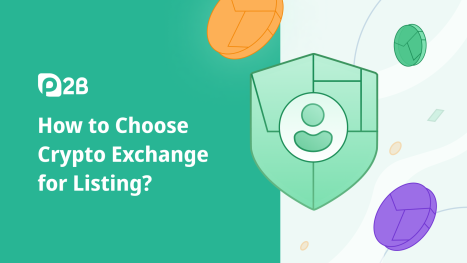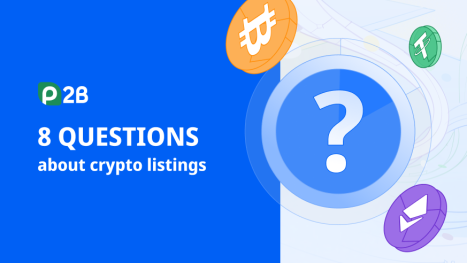7 mistakes to avoid when listing your coin on an exchange
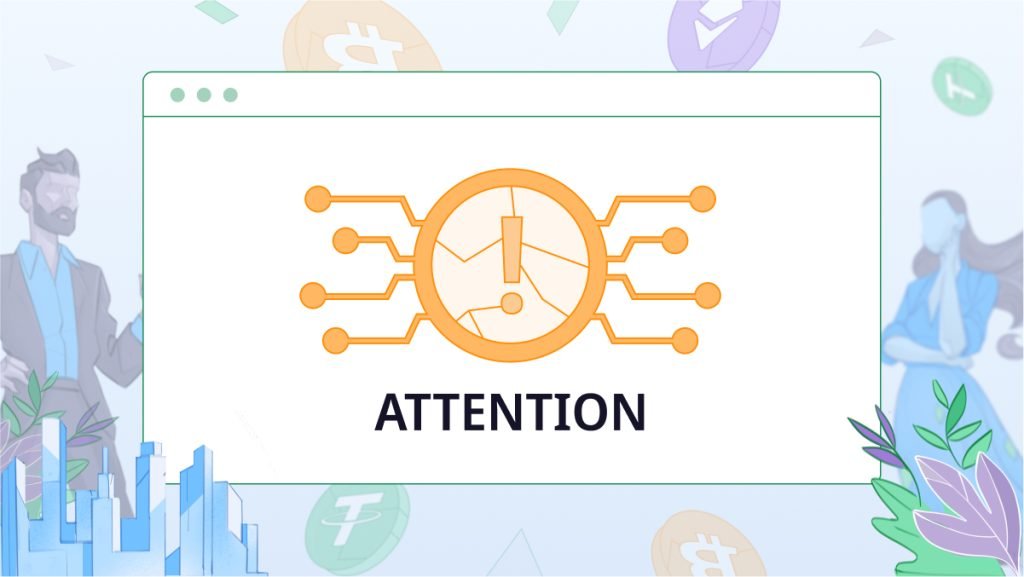
Almost every crypto project eventually has to conduct coin listing on an exchange, scheduled for the most appropriate time and circumstances. However, there are certain cases when listing may end up a failure, even though the team seems to invest as much effort as possible in its implementation.
Listing can be unsuccessful in two different ways: a coin has not been listed on an exchange or listing has not been as profitable as planned. The latter case is even sadder, as this can lead to the coin being delisted from the exchange, which may bring even more financial losses and damage the reputation of the project.
There are different reasons why failures happen, and the most obvious one is simple: the project team has never dealt with listing before. But that’s not the only reason: some of them cannot be influenced by the project team; for example, they cannot change the laws of countries or the financial state of the market. Yet in most cases problems are caused by typical mistakes, which are nevertheless quite easy to avoid with experience and a little bit of helpful information. Here they are.
1. Aiming for a top crypto exchange with a small-cap project
Major crypto exchanges, such as Bittrex or Binance, sport huge traffic. The coins featured on these exchanges quickly gain exposure in the crypto industry. This helps to build a sustainable community, earn reputation and get funding for further development.
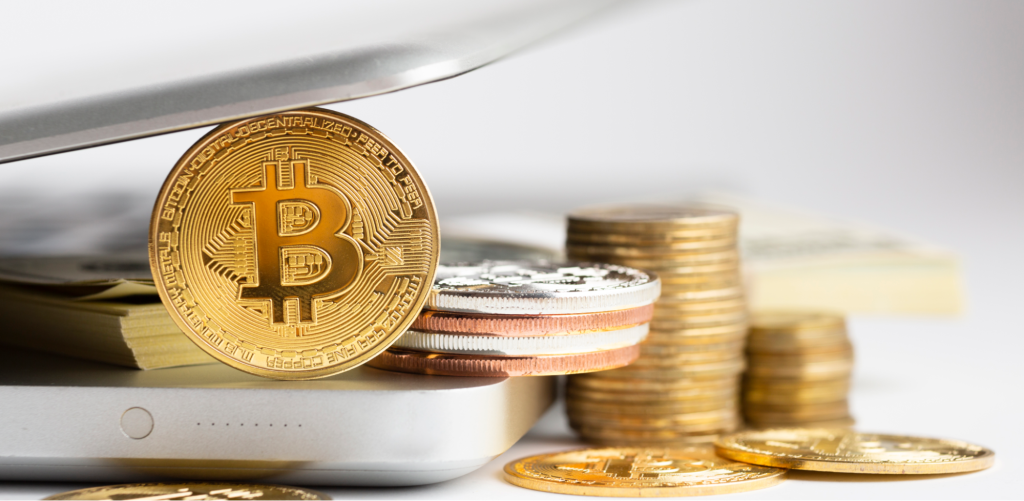
The problem with top exchanges is that they are very difficult to get listed on. There are two main factors that get in the way of a small-cap project:
- High-quality requirements. A project may be the most innovative and promising in the whole world, yet it takes lots of money to develop truly solid software. This can be quite problematic for startups. Hence, the project is still very unstable by the time of the first listing. Representatives of big exchanges understand this, so they check everything about the project very carefully. They cannot allow a potentially vulnerable and/or technically unfinished coin on the platform.
- Legal positioning. Top exchanges have monthly trade volumes amounting for billions of dollars. Running such a large business without involvement of the government is hardly possible. Therefore, they want to be fully transparent in terms of legislation. Crypto startups often have problems with legal positioning, because the team is more focused on technology than legal support. This can be unacceptable for the representatives of top exchanges. Even a technologically innovative project may be declined.
A listing attempt — fueled by the desire to get to the top too fast — may cost more than the team can handle. Spending huge amounts with a low success probability is simply irrational. It is better to focus on platforms that are more accessible.
2. Listing on a crypto exchange with a low trade volume
This situation is a direct opposite to the first. There are crypto exchanges that turn out to be useless even for small-cap projects. Spending time and money on them isn’t effective; listing may be easy, but typically has little chance of paying off.
The main problem of small exchanges is low trade volumes. Sometimes these businesses cannot survive relying solely on commissions, so they charge a fixed listing fee.

There are three main reasons why this idea can fail:
1. Lack of payback. Since the audience of such exchanges isn’t large, the project will not be able to sell many coins on it. The price will not grow with small demand. As a result, the listing fee may not pay off. The project team will just throw a few thousand dollars down the drain.
2. Low security level. A successful attack on accounts may result in loss of money and, more importantly, cause huge reputation damage, which can become irreparable for startups.
3. Legal concerns. Small exchanges often accept projects that may not be fully legal, and the very first audit can end their existence.
The optimal solution here is to approach mid-ranking exchanges, which have already gathered a stable audience and positive reputation.
3. Avoiding due diligence
Neglecting the legal side of things is not rational in the long run. If your coin successfully enters new exchanges and conquers new markets, it will become necessary to take care of your startup’s legal positioning. From the very first stages of development, you need to be ready for audits.
Crypto exchanges conduct such operation as due diligence, and it’s a great way to see whether your coin has any legal violations or uncertain aspects. The worst thing that can happen is rejection. Yet you will know for sure what you need to fix and improve — and prevent possible legal problems in the future.
4. Overlooking advertising and media support
Listing, as is, gives nothing to the project. If traders and investors are not interested in a new token, or even don’t know about its very existence, listing is a useless and costly procedure.

To prevent this, an advertising campaign is a vital must. Well, it is a must for any kind of product or service — but in the crypto world, generation of buzz around a coin is the very basis — and it must be solid. Potential investors and traders, let alone your project’s social media community, should get to know that your coin is finally entering a new platform. You can run a bounty campaign and provide sponsored posts on relevant crypto-themed websites. And of course, you should place ads on the exchange where your coin is about to be listed (this service is usually included in listing packages).
5. Neglecting specialized listing agencies
Even if your project is so perfect that Elon Musk himself would admire its technical implementation, it can still be declined due to incorrectly filed documents or similar issues, which might be obscure to people who have never dealt with listing before.
In order to prevent these issues, save your own time, and be confident with your listing, you can address special agencies that provide assistance with listing. They help to choose suitable exchanges, get special discounts owing to their business partnerships with these exchanges, collect a set of documents for each of them, conduct an audit, register a business, and so on. Actually, you would need to have an entire department of qualified employees to do this job; yet it would be time-consuming, expensive, and still hardly make any sense. Instead, you can always enlist the services of such companies.
6. Selling tokens at the wrong time
After the IEO (provided you conduct it), a considerable part of your tokens will be given away to investors. Some of them will retain their assets or simply forget about them for a while. Perhaps someone will use them for business, if the project is already operational. However, it is important to understand that the main goal of most IEO investors is to earn money there and then. Therefore, as soon as the coin appears on the first exchange, and its price goes up, they will put their assets on sale. High supply reduces demand, and as the price falls, the point is not to exacerbate the situation by issuing and selling additional tokens.
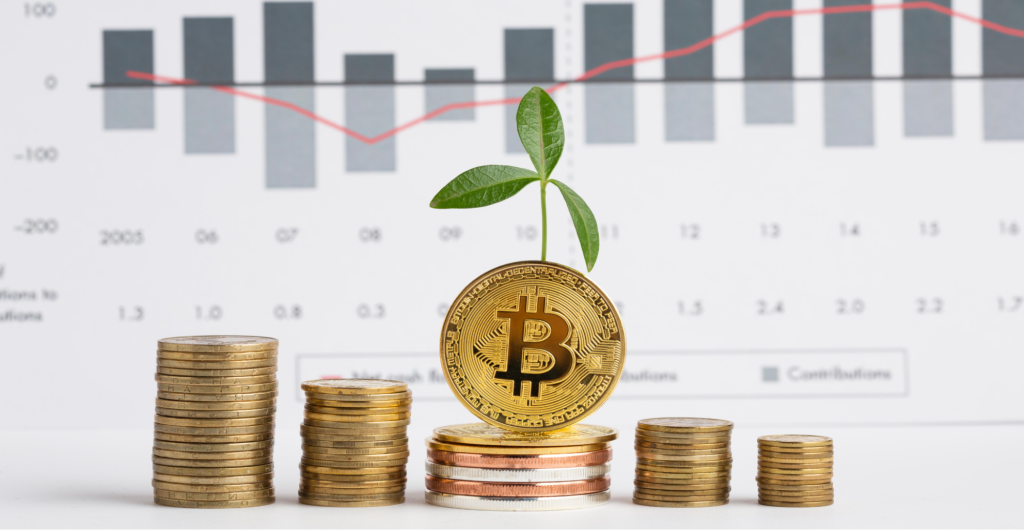
And when the price goes up, there is a great temptation to sell your assets and earn money for further project development. However, your team should be wiser and wait for a better moment. Selling tokens at the wrong time only leads to a greater price drop, which in turn can mean harm to the reputation of your project.
7. Relaxing after listing — instead of working hard to increase coin liquidity
Okay, now imagine your coin has finally been listed on a reputable exchange. That’s a milestone for your project, yet it’s too early to relax. In order to keep your coin listed, you need to boost its liquidity and stability, as well as maintain its trade volume, which is often achieved via market making services (quite often provided by exchanges as part of listing packages). Meanwhile you need to keep your network stable and keep attracting new investors. It’s a continuous job that must be done.
Getting your coin listed on a good exchange is a chance for your project to become popular and evolve more actively. Therefore, you definitely should get the most out of this chance.



